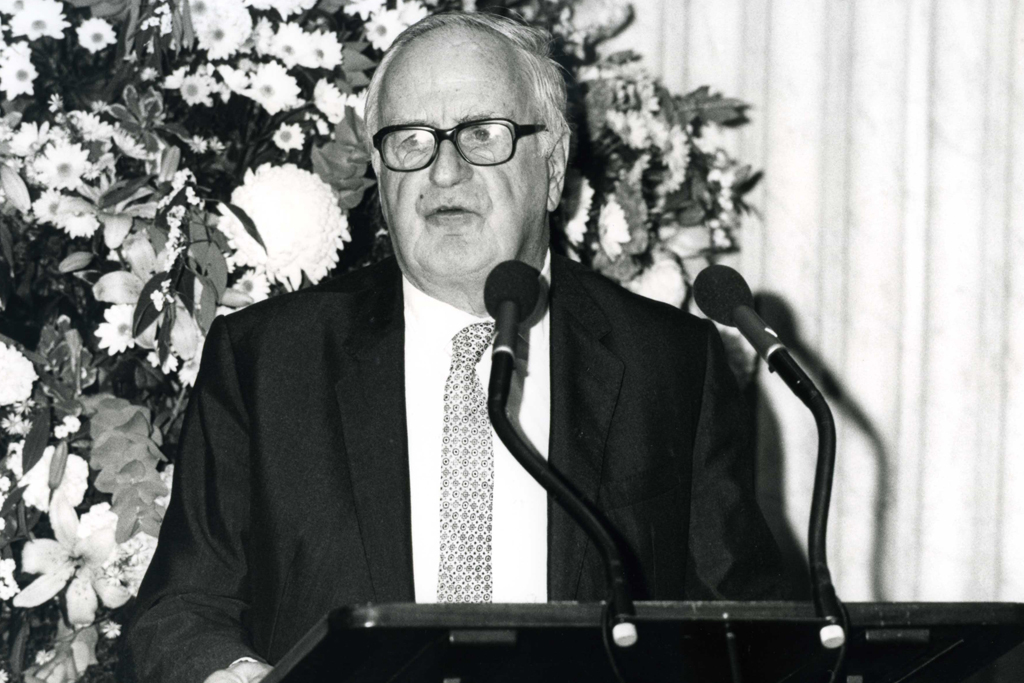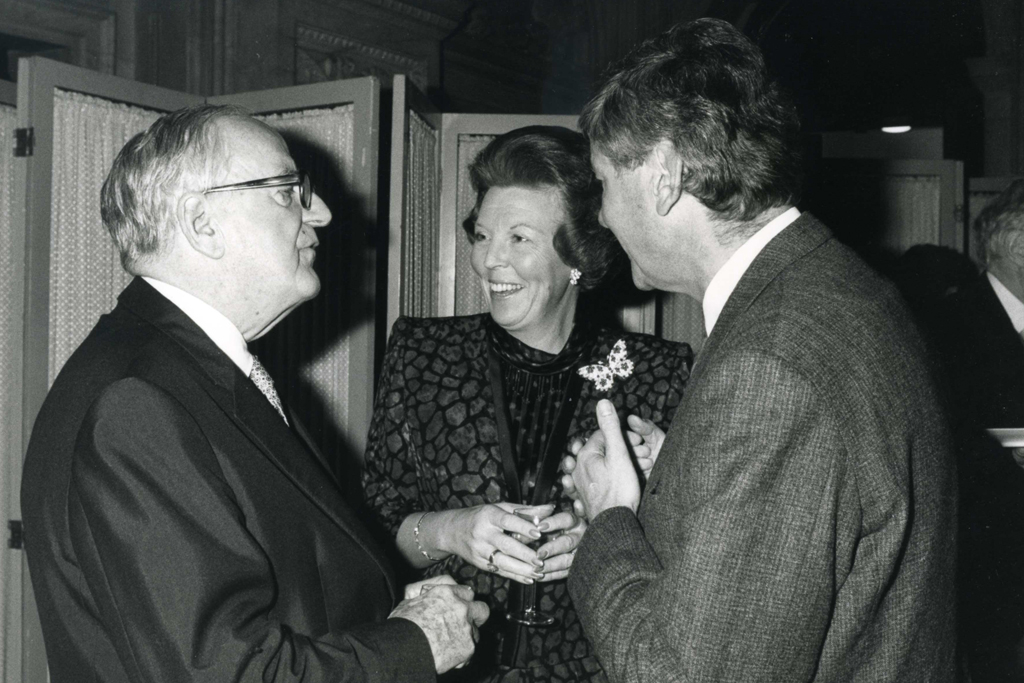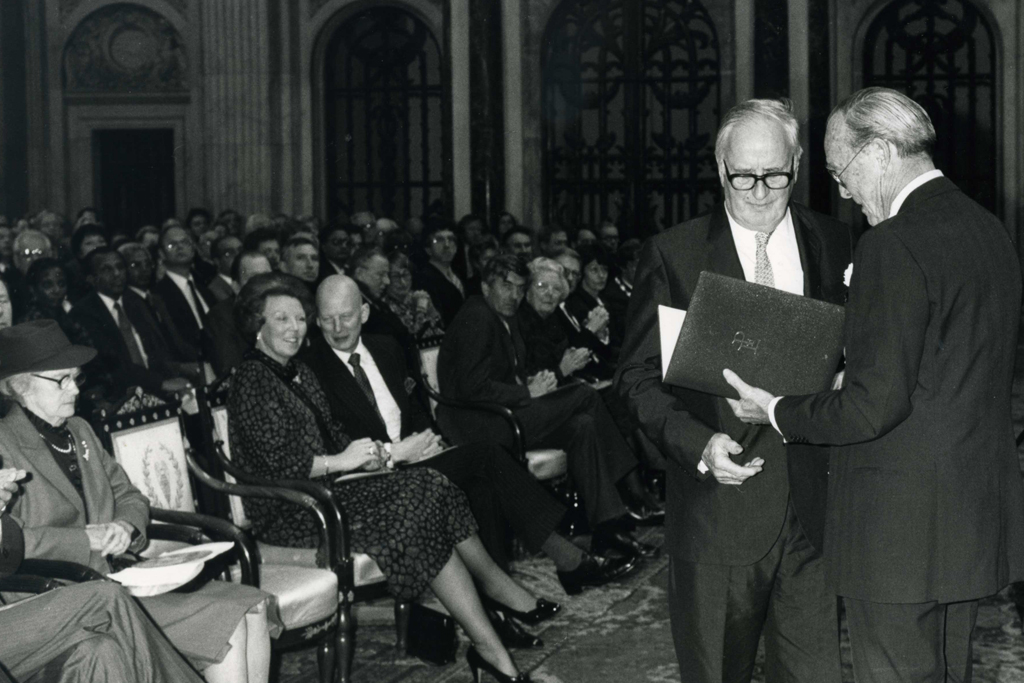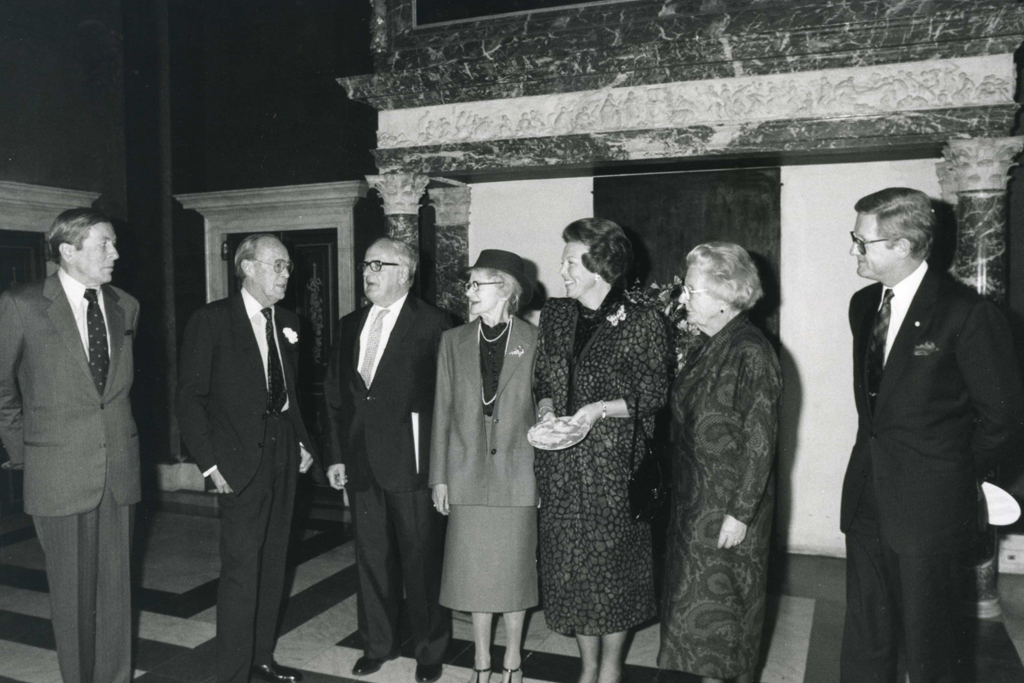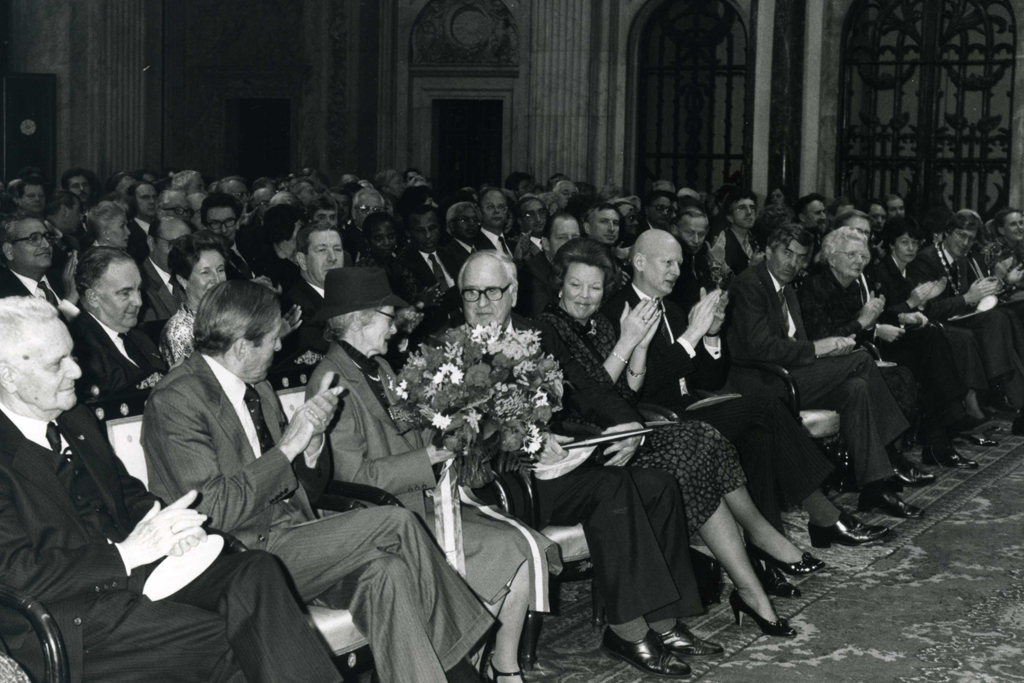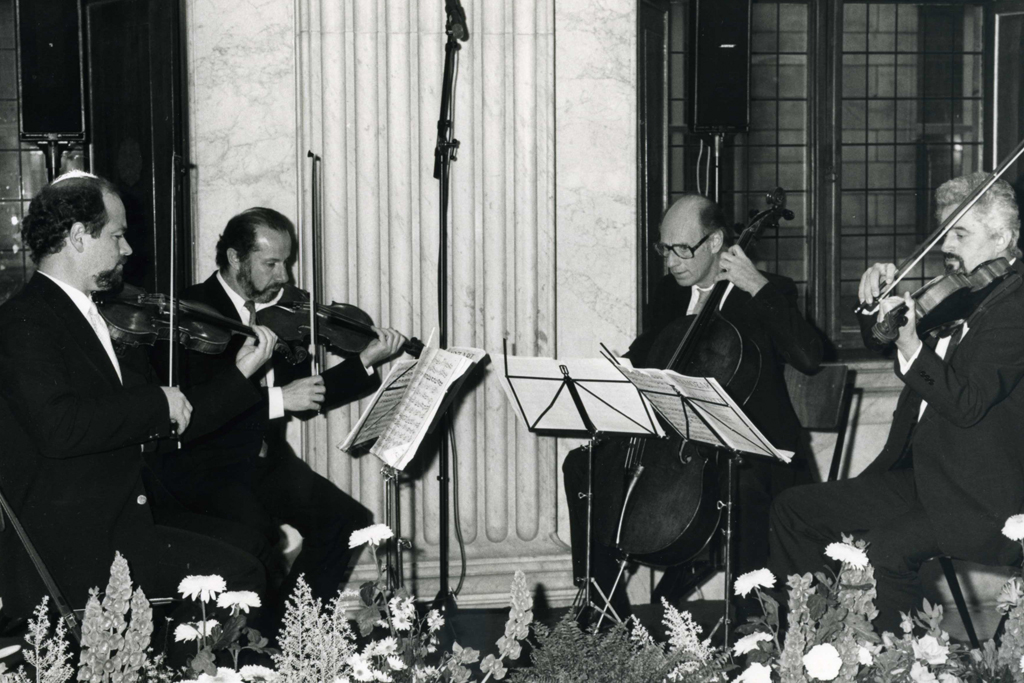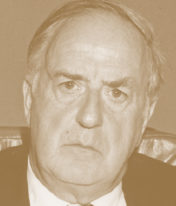Alexander King
Laureate Erasmus Prize 1987
Theme: Technology and Society
Dedicated to ‘Technology and Society’, the Erasmus Prize this year was awarded to the Scottish scientist Alexander King. He is best known for his early awareness of the positive and negative impact of technological progress on society.
Alexander King (1909-2007) was one of the founders of the Club of Rome in 1968. The physical chemist warned in particular about the pollution of the planet. He pointed out that as a result of progress in both transport and communication technology, the problems had to be dealt with in a global context.
As a senior civil servant in Great Britain, Alexander King occupied a variety of positions involving science policy. Not limited to the natural sciences, he zealously incorporated both economics and behavioural sciences into his policies. From the 1960s until his retirement in 1974, he was Director-General of education and science at the Organisation for Economic Co-operation and Development (OECD) in Paris. In that position, King insisted that the industrial world would have to make science and technology policy part of their public responsibility. He initiated the Science Policy Surveys, which took a critical look at the state of science and technology. Among other things, his initiatives encouraged new forms of education. After he retired, he concentrated on the activities of the Club of Rome, becoming its president in 1984.
Alexander King remained convinced that many of the problems could be solved. At the same time, however, he stressed that progress should not be pursued at any price.
Alexander King used his Erasmus Prize to fund projects of the Club of Rome.
